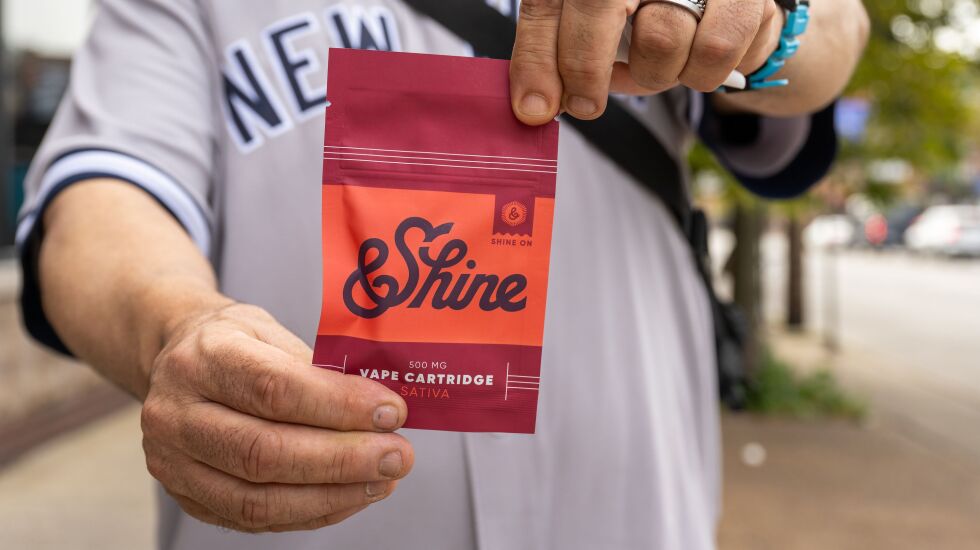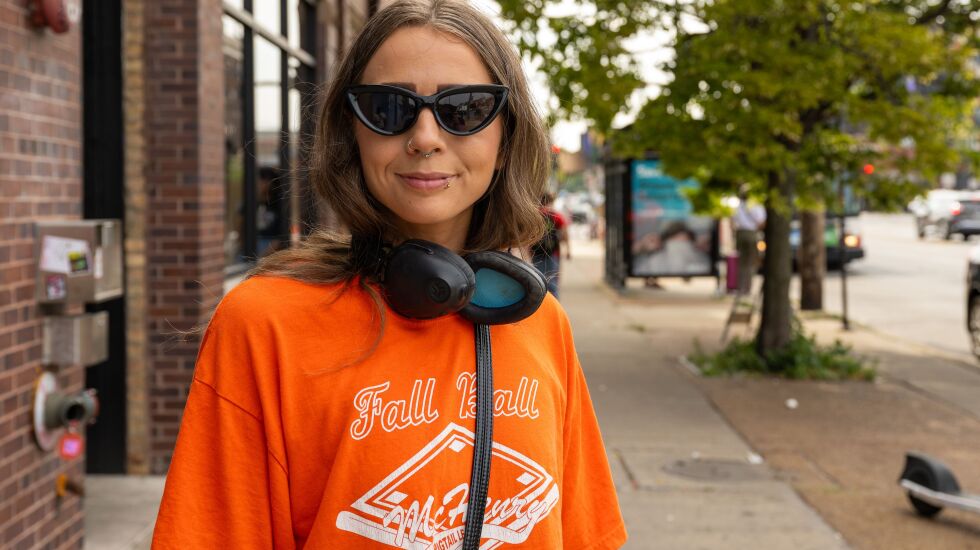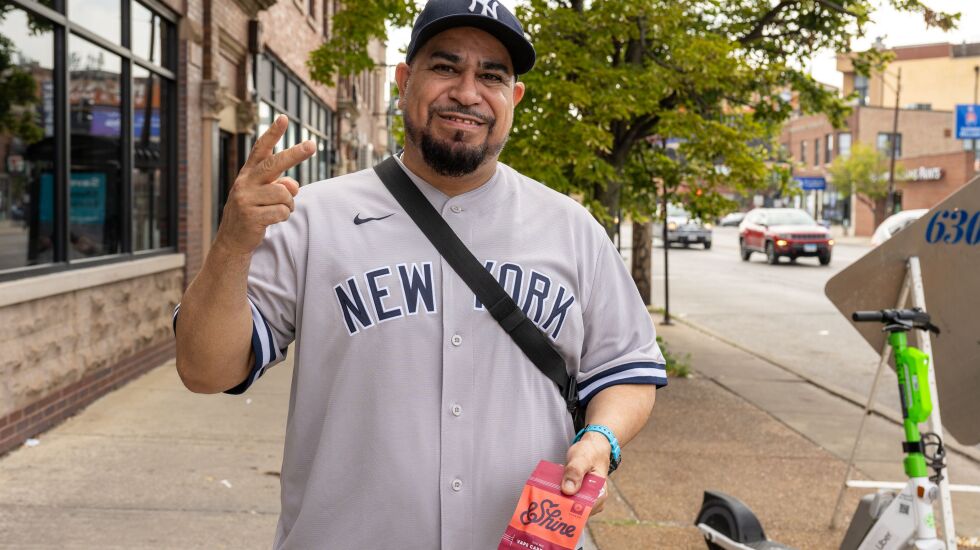
Pot prices remain higher in Illinois, the third largest cannabis market in the nation, than in most other states.
Illinois saw $950 million in pot sales in the first half of this year, but the average price per item in Illinois is 89% higher than in the rest of the U.S. cannabis market, according to a new report from Headset, a company that provides data and analytics to the cannabis industry.
Though she hadn’t seen the report, Courtney Campbell, who used to work in a cannabis dispensary in the Chicago area, wasn’t surprised that prices in Illinois were on the high end of the list.

“When I worked at the dispensary, people would come in from other states where it’s legal and they were, like, astonished at how much they are paying,” Campbell said Wednesday afternoon as she walked out of Ascend Cannabis Dispensary in Logan Square. “Prices are really high.”
Campbell, 35, said the high prices have led her to look outside the dispensary system to get her weed.
“I have just bought black market before instead, because it’s a little bit easier,” Campbell said. But, she said legal weed is such an in-demand commodity now that people will shrug off high prices at dispensaries.
“I think people will buy it no matter how much it costs,” she said.
Sales figures so far this year suggest Campbell’s right. In the first six months of 2023, Illinois retailers reported more than $950 million in total cannabis sales, making the state the third largest cannabis market in the country, behind California and Michigan.
That puts the state on pace to easily surpass the record total sales from 2022, when $1.55 billion worth of marijuana products were sold, according to figures reported by the state.
But Illinois has relatively few distinct brands, with just 118, compared to Washington State, which has over 1,000 and Michigan, which has about 800.
With such a limited selection, the report states it is “no surprise,” sales are highly concentrated within a few brands. About 68% of sales in Illinois come from the market’s top 10 brands, Headset found.
It's also common in Illinois for retailers to sell house brand products, which when coupled with the small selection of brands, likely contributes to the high prices, according to Headset.
“The high vertical integration coupled with the small brand selection likely contributes to a situation where prices are allowed to stay relatively high,” the study finds.

Ivan D., 52, purchased a sativa vape cartridge at Ascend, emphasizing that he bought it because it was on sale. He said the prices wouldn’t be so bad if taxes weren’t also steep. He thinks the state should lower them.
“Otherwise, everybody is going to want to do it in the street, and buy it off of anybody,” Ivan said. “What would you rather do? Would you rather get a lot more stuff from somebody who’s selling it in the street, or would you rather come here and pay all that tax and get a lot less.”
The state charges a 6.25% sales tax and an excise tax of up to 25% on pot sales, depending on the amount of mind-altering THC in the product.
But Santiago T., 23, said he thinks the high prices are worth it because the quality is consistent, adding that the street market isn’t what it used to be.
“It’s not the same anymore, I can’t go back to that,” Santiago said outside Ascend. “This weed is cleaner than the one in the streets.”
The pot industry in the state has seen explosive growth since it became legal to buy marijuana for recreational use in 2020. The following year, the state issued an initial round of retail permits to 55 ventures.
Recipients included former NBA stars Allen Iverson and Al Harrington, Cook County Commissioner Bridget Degnen, longtime news anchor Robin Robinson and the indicted son of ex-state Rep. Eddie Acevedo.
The state social equity program, aimed at increasing diversity among license holders, has long been criticized for stalling the application process. Nearly 200 have received conditional licenses, but few have been fully authorized by the state to open as of this month.
“Illinois is creating strong returns for current owners and investors in our growing cannabis industry,” said John R. Daley, president of Daley Strategy Group, a consulting firm that has done work for the pot industry. “But the state has more work to do to achieve the vision of equitable access to ownership for Black and Brown communities and others impacted by the failed war on drugs. I’m hopeful there’s a better way forward.”
This week, two giants of the cannabis industry halted plans for a $2 billion merger.
Chicago-based Cresco Labs and Columbia Care of New York originally announced plans to merge in March 2022, but on Monday both parties announced that the deal had ended by mutual agreement, according to a press release from the two companies.







